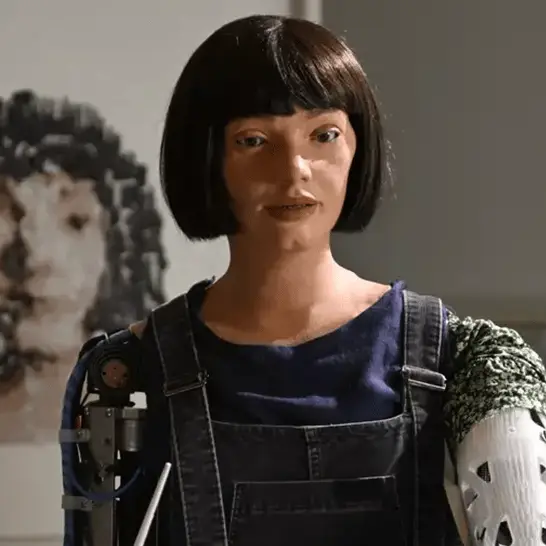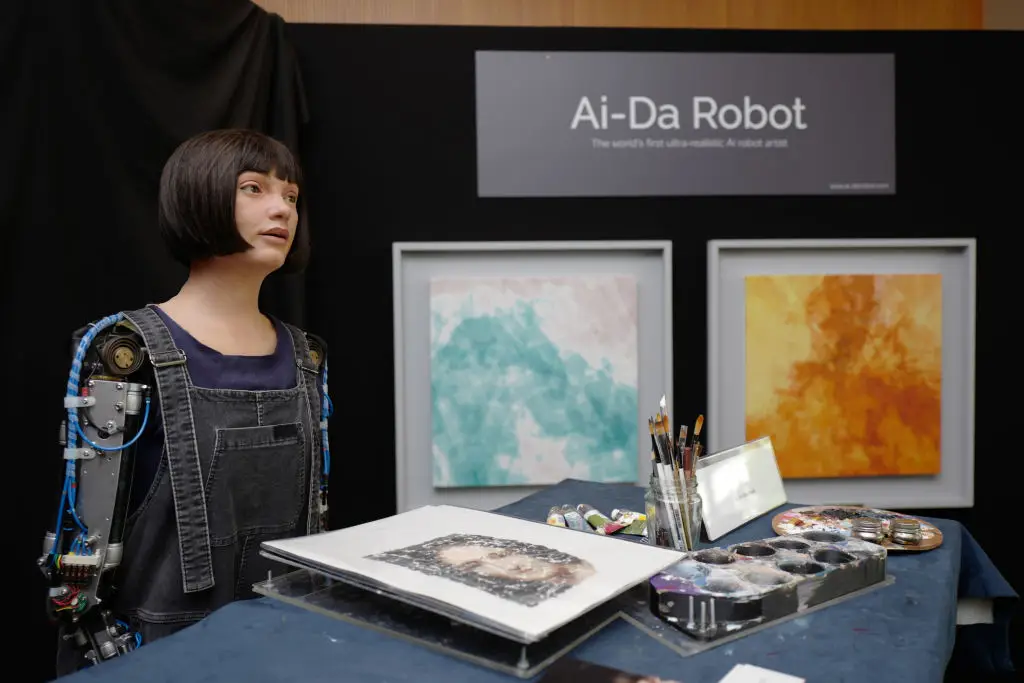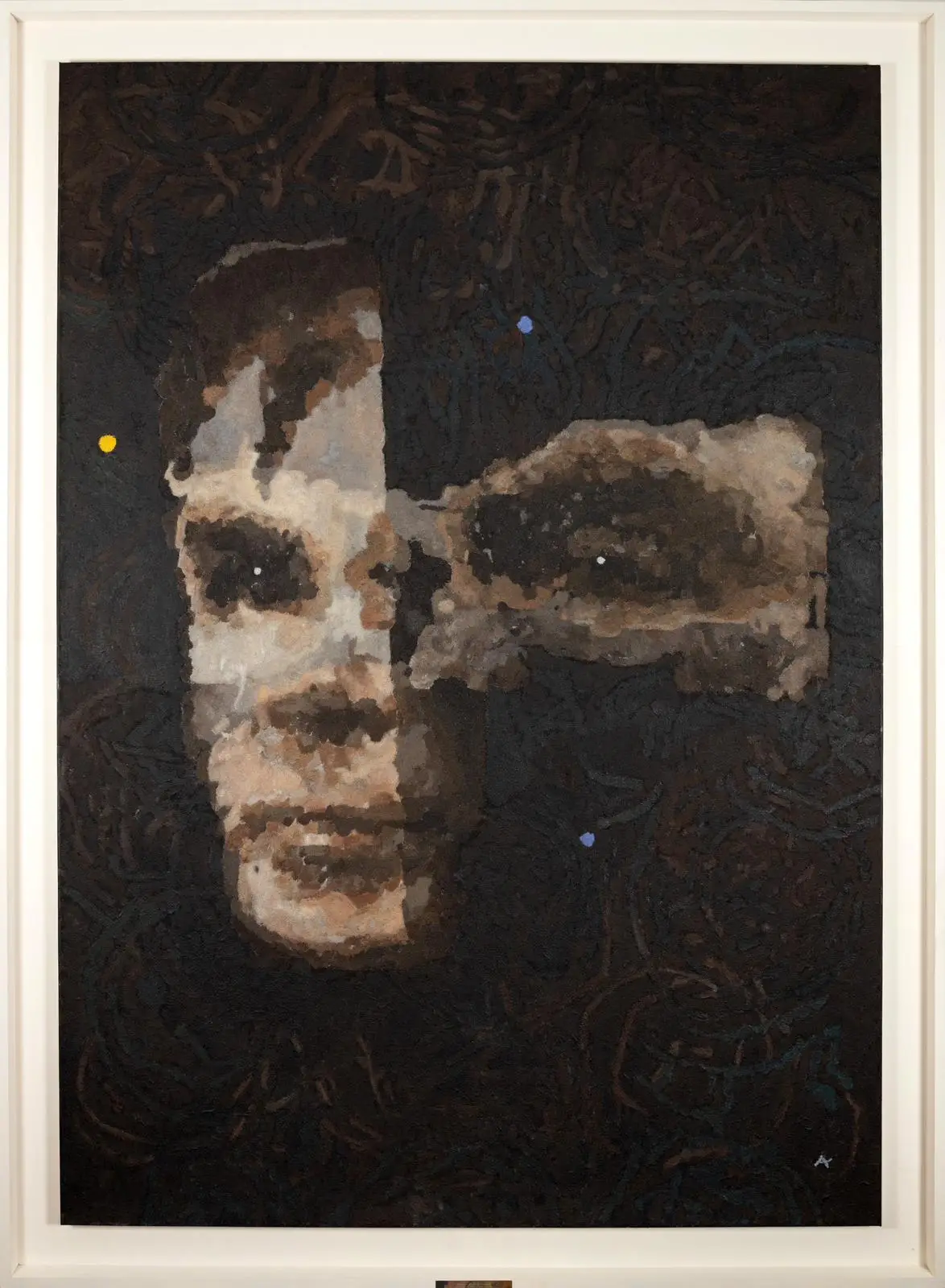
History has been made as the first artificial intelligence (AI) generated piece of artwork has been sold at auction - and for a staggering amount of money too.
Long have art auctions dominated news headlines, as sale prices continue to soar beyond the millions as collectors look to build their enterprise.
Typically you'd find that the price of an artist's work would dramatically rise after their death - especially in the case of painters like Van Gogh whose work was deemed low value when he was still around - but how would you value art created by someone who was never alive in the first place?
That question has now finally been answered, as the first piece of AI generated art has been sold at an auction, as it was 'created' by ultra-realistic humanoid robot 'Ai-Da'.
Advert

Named in honor of famous mathematician and writer Ada Lovelace, Ai-Da was created by Aidan Meller in 2019 with the help of Engineered Arts, and was built to be an artist capable of creative expression through the power of AI.
Having previously created self portraits for solo shows, alongside art of musical acts like Billie Eilish and Sir Paul McCartney, Ai-Da's most recent work was a large-scale portrait of the iconic Alan Turing titled "A.I. God. Portrait of Alan Turing".

This piece has not only made history by becoming the first auctioned piece of artwork created by a humanoid artificial intelligence through the Sotheby's Digital Art Sale, but it also sold for a staggering amount.
The piece earned its creator a jaw-dropping $1.08 million (£835,500) after its sale on November 7, despite initial predictions expecting it to land around $180,000.
The artwork itself was crafted after three paintings made by Ai-Da of Turing were uploaded to a computer, where the completed image was then generated through Ai-Da's own requests and 'creative' process.
This final generated image was then brought back into the real world through a 3D textured printed, after which additional marks and textures were added to the canvas as decided by Ai-Da.
The only human involvement was indeed these marks, which Ai-Da could not add due to physical restraints, but the humanoid determined the color and position of the marks and communicated it to studio assistants.
Questions surrounding the ethics of both the production and the sale were raised by Ai-Da and its creator Mellor in a statement at the auction house.
The painting "invites viewers to reflect on the god-like nature of AI and computing while considering the ethical and societal implications of these advancements" said Ai-Da, while Mellor remarked that "the artwork 'AI God' raises questions about agency, as AI gains more power."
Much like anything to do with AI it's clear that situations like these will not be isolated incidents, but it's certainly intriguing that the AI itself is aware and willing to question the ethics of its own existence.
